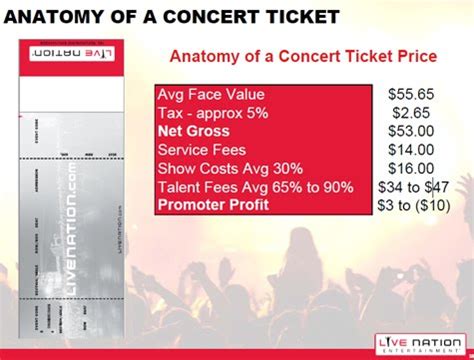Don't Buy Blind: See Concert Ticket Price History Before You Click "Buy"
Concert tickets: the gateway to an unforgettable night of music, or a potential financial pitfall if you're not careful. The thrill of securing tickets to see your favorite artist can quickly turn sour if you overpay significantly. Knowing the historical price trends for concert tickets can save you money and prevent buyer's remorse. This guide will help you navigate the sometimes murky waters of ticket pricing and empower you to make informed purchasing decisions.
Why Check Concert Ticket Price History?
Before diving into how to find this crucial information, let's clarify why it's so important. Ticket prices fluctuate wildly based on a multitude of factors: artist popularity, venue size, demand, date of the show, and even the seating location. By understanding price history, you can:
- Avoid Overpaying: Many ticket marketplaces inflate prices, especially closer to the event date. Knowing the average historical price for similar shows will help you identify inflated listings.
- Spot Deals: Conversely, understanding price trends allows you to recognize genuinely good deals when they emerge. Sometimes, prices drop unexpectedly, and being aware of the historical context allows you to capitalize on these opportunities.
- Make Informed Decisions: You can assess if the current price is reasonable compared to past performances and adjust your expectations accordingly. You might decide to wait for a better deal or opt for different seating.
- Budget Effectively: Understanding typical price ranges allows for better budgeting. You can avoid unexpected financial strain by knowing the ballpark figure for ticket costs.
How to Find Concert Ticket Price History
Unfortunately, there isn't a single, centralized database that tracks every concert ticket's price history. However, several strategies can help you gather valuable information:
1. Utilize Third-Party Ticket Resellers' Archives (with caution):
Sites like StubHub, Vivid Seats, and Ticketmaster's resale market often retain historical data, although access may be limited. While browsing listings for similar past shows by the same artist at similar venues can give you an idea of past prices, remember these are resale prices, which can be inflated. Use this data as a general guide, not a definitive benchmark.
2. Check Social Media and Fan Forums:
Dedicated fan communities and social media groups often discuss ticket prices. Searching for past concert experiences with the same artist might reveal conversations about ticket costs. This is less reliable for concrete data but can provide valuable anecdotal evidence.
3. Track Prices Over Time (if buying early):
If you're planning to buy tickets well in advance, consider regularly checking the price on the official ticket vendor's website or your chosen reseller. Make note of the price fluctuations to build a rudimentary historical record for that specific event.
4. Use Price Tracking Tools (limited availability):
While not widespread, some price tracking websites or browser extensions might offer limited functionality for tracking ticket prices. This is an evolving field, so keep an eye out for new tools.
What Factors Influence Concert Ticket Prices?
Understanding what influences ticket prices helps you interpret historical data more effectively:
Artist Popularity: A highly sought-after artist will naturally command higher ticket prices.
Venue Size: Smaller venues typically have higher prices per ticket due to limited capacity.
Demand: High demand, especially for popular shows, will drive prices up.
Day of the Week and Time: Weekday shows or matinees might have slightly lower prices than weekend performances.
Seating Location: Premium seating options, such as floor seats or VIP packages, significantly increase the ticket price.
Is it Worth Waiting for Lower Prices?
This depends entirely on your risk tolerance and the popularity of the artist. For highly in-demand shows, prices often increase as the event gets closer. However, for less popular shows or those with remaining tickets, you might find better deals closer to the event date. Weigh the risk of tickets selling out against the potential savings.
Conclusion: Informed Choices Lead to Better Concert Experiences
Buying concert tickets shouldn't be a gamble. By actively investigating price history and understanding the factors that influence ticket costs, you can make informed decisions and enjoy your favorite artists without the sting of overpaying. Remember to utilize a combination of the strategies outlined above for the best results. Happy concert-going!

